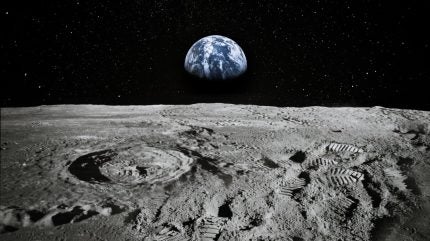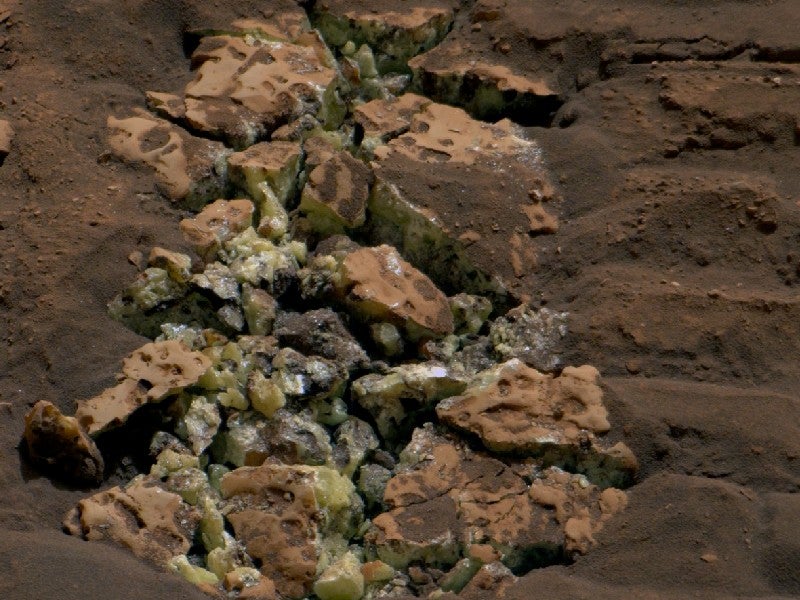
Space is the next frontier when it comes to mined goods, with companies eyeing up the lunar surface and asteroids for resources including rare earths and water to create rocket fuel, support off-planet bases and, one day, bolster supply chains on Earth.
The concept is not new; however, previously high launch costs and a lack of investment in the right technologies kept dreams firmly on the ground. Now, a new wave of private investment has dramatically dropped launch costs and the race to stake a claim in off-planet operations is heating up once again.
Legislation around this changing landscape, however, is ill-defined and murky, with questions over extraction rights and lunar land ownership remaining unanswered. As companies increasingly turn their attention to the stars, the need for internationally applicable regulations will become more important to create a sustainable industry and maintain international relations.
The promise of space mining
Currently, space mining’s primary draw is to sustain human activity in space. That is, materials offered by asteroids and the lunar surface are typically of a lower grade than those found on Earth, making them less competitive with terrestrial resources. The benefit instead lies in their proximity to planned off-planet base stations, which will need fuel and water.
“It is important for people to understand that we are not going to be mining critical minerals and bringing them back to Earth,” says Kevin Cannon, senior lunar geologist at Ethos Space, a company working to ‘industrialise the moon’. “Lunar resources will be used in space to refuel rockets and build surface infrastructure,” he adds.
While plans to develop space mining have been in motion for some time – with the first major influx of investment in the 2010s – the landscape has shifted over the past decade as new, privately funded players have entered the market.
“From an economic point of view, things have hugely changed over the past 15 years,” explains Daniel Britt, director of NASA’s Center for Lunar and Asteroid Surface Science. “Thanks to companies like SpaceX, launch costs have just collapsed – you are looking at $50m–60m launches rather than $300m or $400m. It will never be cheap, but this is a huge difference.
“What drives exploration is low transportation costs – with this, the threshold to getting into the space mining business has dropped.”
In future, off-planet resources could be used to meet demands for electronics, clean energy technologies and battery materials. Although these developments remain a way down the line, commercial interest in space is set for a boom, with Cannon saying lunar mining is going to progress from tech demonstrations to “full-scale operations” in the next three to five years.
Figures from Mordor Intelligence also estimate the space mining market will jump from almost $2bn in 2024 to $16.3bn by 2037. While the US and China are currently leading the charge, the total number of countries with payloads in space has never been higher.
Given that full-scale exploitation of space resources has not yet even begun, the need to define how governments should divvy up extraction rights is increasingly pressing.
Regulation: space for interpretation
While some regulations around space mining already exist, problems have arisen from the fact that the few legislative measures in place leave much room for interpretation.
The UN’s Outer Space Treaty, first established in 1967, forbids nations from claiming ownership of celestial bodies. However, it doesn’t lay out specific laws regarding space mining. In the years since the treaty’s was signed, nations have introduced their own stipulations that leave more wiggle room for extraction.
The US has emerged as a particularly active party in introducing space law.
The US has emerged as a particularly active party in introducing space law. In 2015, US Congress passed the Commercial Space Launch Competitiveness Act to allow US citizens to “engage in the exploration and commercial exploitation of space resources”. In April 2020, the Trump administration also issued an executive order encouraging the “recovery and use” of space resources.
In May of the same year, NASA introduced its Artemis Accords, a series of guidelines that have now been signed by more than 40 countries (excluding Russia and China). These accords include stipulations such as peaceful exploration of space, transparency and deconfliction of activities.
At the same time, nations including Luxembourg, Russia, Japan, China and the United Arab Emirates (UAE) have also been designing their own regulations laying out their rights to extract certain resources.
While it may seem there are an abundance of laws around space exploration, the challenge lies in the fact they are not standardised. Difficulty also remains in establishing common agreements to ensure the industry develops equitably.
Defining regulations for mining in space
“People talk about the legal framework of mining in space, but there essentially is no legal framework that I could recognise,” says Britt. “Your problem is that you have got lots of sovereign actors in space. Let’s say the US mines an asteroid, and then takes issue with China doing the same thing the next week. From America’s jurisdiction point of view, they could say the Chinese actors are criminals, but from China’s perspective, they are just exercising the right to be there, same as America.
“For a legal framework to work, it needs to be broadly agreed upon and enforceable,” he adds. “We are not, currently, in a position where this is possible.”
Similarly, Sa’id Mosteshar, director of the London Institute of Space Policy and Law, points to the difficulty in finding common ground in defining the terms laid out in the Outer Space Treaty.
We currently have legal uncertainty over ‘in situ resource utilisation’ – meaning what companies do with materials they extract, and then use, in space
Sa’id Mosteshar, director of the London Institute of Space Policy and Law
“It is something of a legal quagmire,” says Mosteshar. “We currently have legal uncertainty over ‘in situ resource utilisation’ – meaning what companies do with materials they extract, and then use, in space.
“It raises the question, can corporations take materials from space and use it for themselves, to the exclusion of others? And with something like an asteroid – the question is then how much of the asteroid do you have to take for it to be classified as exerting total jurisdiction over it?”
The main benefit to mining in space is also its main issue – that all of it is accessible and usable to all nations. Until governments can homogenise definitions of ownership and usage, they risk being at loggerheads with one another.
According to Joel Sercel, CEO of space exploration company TransAstra, it is unlikely these differences will be ironed out until space mining is already fully under way.
“The history of humanity is that as we move into new domains, we work out the legal issues as we go,” he reflects. “The laws currently in space are a temporary stopgap until people actually go out and start living and working in space… Then, inevitably, property rights and legal standards will emerge.
“It would be far better if we could think rationally about this in advance, rather than allow conflicts to happen and then clean up afterwards,” he adds.
How should the industry adapt to changes?
While there is an understanding that space laws need to be updated to reflect the increasingly competitive landscape, there is also a reluctance to enforce any widespread changes, with companies deterred by the money and time needed to do so.
“Some people are calling for a new international treaty to shore up uncertainties around mineral rights, safety zones and so on,” says Cannon, “but there is no appetite for a new treaty and that is not going to change anytime soon.”
Similarly, Mosteshar says that, currently, nobody is particularly anxious to spend the money to challenge states that break the terms of space treaties. However, updates to the legal system are inevitable, and companies are already highlighting blind spots that governments should consider when designing regulations.
“One thing that is not very much spoken about is the market impact of mining particular commodities,” notes Mosteshar. “For example, something like helium-3 is a useful thing to bring back to Earth, but because it is a scarce resource, it could undermine the market and affect the price.”

Technological hurdles also still need to be negotiated before space mining can reach its full potential. However, while space mining is still in its nascent stages, there is a sense of urgency to update laws before it is too late.
“There is a full range of technologies that need to be developed before space mining can make an impact, but once these are developed the industry will tip, and it will tip fast,” says Britt.
NASA has plans to begin extracting lunar resources by 2032. China successfully landed its Chang’e-6 mission on the Moon’s south pole in June, seeking materials to establish lunar bases. With talk of a lunar gold rush, more nations are expected to follow suit.
While governments grapple over exactly what the space mining sector will look like, it seems clear the industry is due to boom – whether governments are ready or not. Industry sentiment shows legislative clarity is needed to protect international peace and ensure mining in space develops sustainably and equitably.



